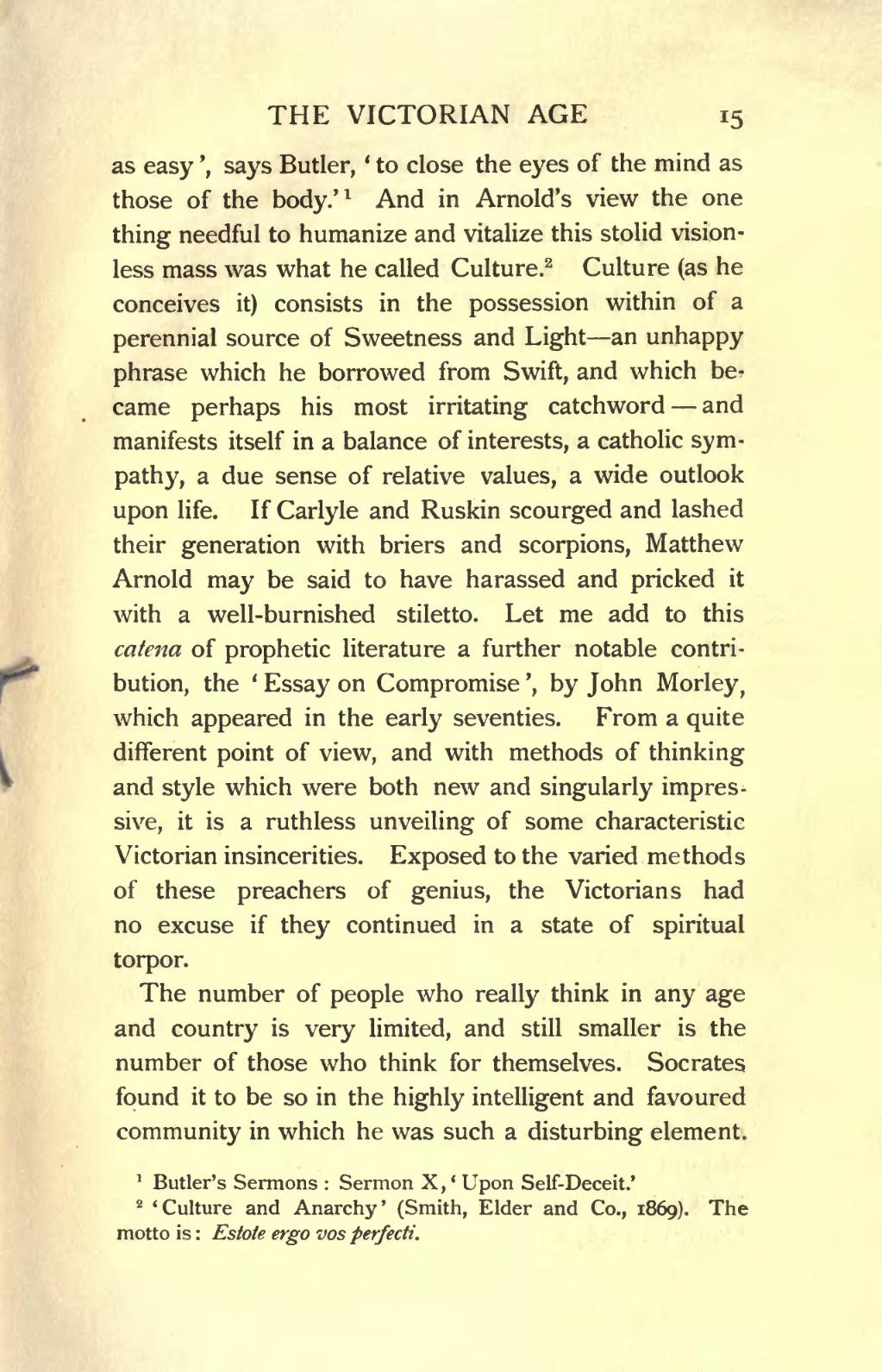as easy', says Butler, 'to close the eyes of the mind as those of the body.'[1] And in Arnold's view the one thing needful to humanize and vitalize this stolid visionless mass was what he called Culture.[2] Culture (as he conceives it) consists in the possession within of a perennial source of Sweetness and Light—an unhappy phrase which he borrowed from Swift, and which became perhaps his most irritating catchword—and manifests itself in a balance of interests, a catholic sympathy, a due sense of relative values, a wide outlook upon life. If Carlyle and Ruskin scourged and lashed their generation with briers and scorpions, Matthew Arnold may be said to have harassed and pricked it with a well-burnished stiletto. Let me add to this catena of prophetic literature a further notable contribution, the 'Essay on Compromise', by John Morley, which appeared in the early seventies. From a quite different point of view, and with methods of thinking and style which were both new and singularly impressive, it is a ruthless unveiling of some characteristic Victorian insincerities. Exposed to the varied methods of these preachers of genius, the Victorians had no excuse if they continued in a state of spiritual torpor.
The number of people who really think in any age and country is very limited, and still smaller is the number of those who think for themselves. Socrates found it to be so in the highly intelligent and favoured community in which he was such a disturbing element.
- ↑ Butler's Sermons: Sermon X, 'Upon Self-Deceit.'
- ↑ 'Culture and Anarchy' (Smith, Elder and Co., 1869). The motto is: Estote ergo vos perfecti.
